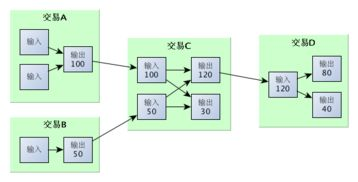Bitcoin Transaction Cost, Understanding Fees and How They Work
In this article, we delve into the world of Bitcoin transaction fees, exploring crucial aspects like what influences these costs, how they are calculated, and tips to minimize them. Understanding these elements is essential for anyone looking to engage in Bitcoin transactions effectively.
In this article, we delve into the world of Bitcoin transaction fees, exploring crucial aspects like what influences these costs, how they are calculated, and tips to minimize them. Understanding these elements is essential for anyone looking to engage in Bitcoin transactions effectively.

The Significance of Bitcoin Transaction Fees
Bitcoin transaction fees are essential charges paid by users to have their transactions processed and confirmed by miners on the network. These fees provide miners with an incentive to prioritize particular transactions over others. The fees can fluctuate significantly based on network activity and overall demand for transaction confirmations.
A primary reason for understanding these fees is that they can impact the speed at which your Bitcoin transaction is confirmed. Higher fees usually mean faster processing times because miners are more likely to pick up these transactions for immediate inclusion in the next block they mine.

Factors Influencing Bitcoin Transaction Fees
Several factors influence the amount of Bitcoin transaction fees that users may encounter. Here are a few key components:
When the Bitcoin network experiences high traffic, the demand for transaction processing escalates, leading to increased fees. During peaks, such as market rallies or significant news events, users may find themselves paying higher fees to ensure timely transaction confirmations.
The fee also depends on the size of the transaction in bytes. More complex transactions, involving multiple inputs and outputs, typically consume more block space, resulting in higher fees. Users can optimize their transaction size to potentially reduce costs.
Different Bitcoin wallets have varying algorithms to calculate and suggest fees based on current network conditions. Some wallets can automatically adjust fees to ensure that transactions are completed promptly.

Strategies to Minimize Bitcoin Transaction Fees
There are several strategies users can employ to manage and potentially reduce their Bitcoin transaction fees:
By monitoring network congestion and choosing to transact during quieter periods, users can save on fees. Websites and tools that track Bitcoin network traffic can assist in timing your transactions effectively.
If you need to send multiple payments, consider batching them into a single transaction. This reduces the total size in bytes and can significantly lower transaction costs.
Many wallets allow users to set custom fees. Familiarizing yourself with fee markets can provide insight into the optimal fee to pay while still guaranteeing timely confirmation.
In conclusion, Bitcoin transaction fees are a fundamental aspect of the cryptocurrency experience, shaped by network demand, transaction size, and user behavior. By understanding these factors and employing strategic practices, users can navigate the complexities of Bitcoin transactions more effectively and economically.




